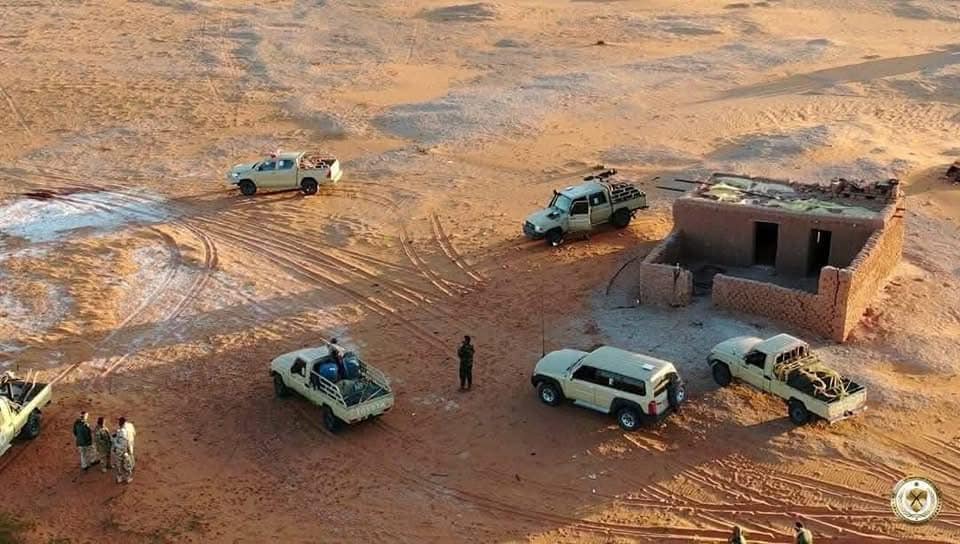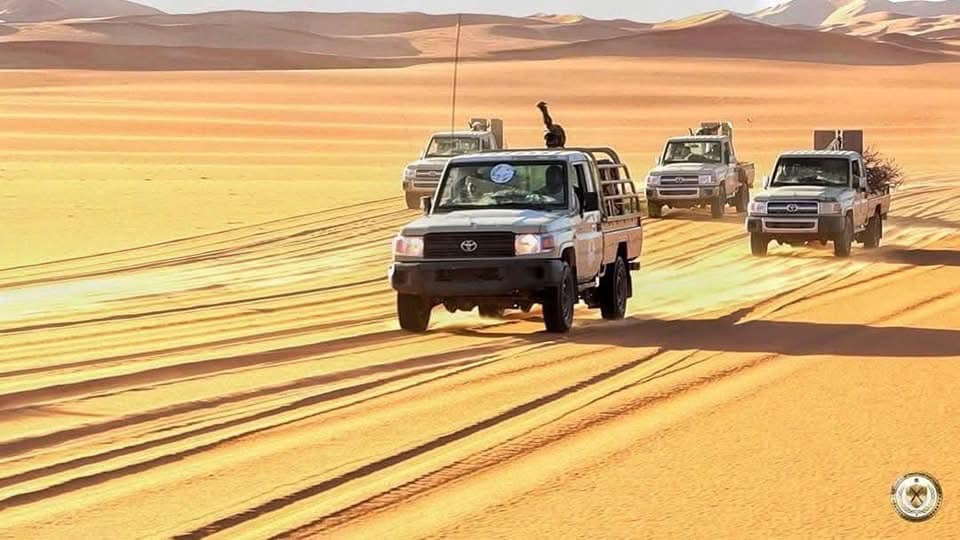By Staff Writer
Tripoli— Last week, the Intelligence Division of the Land Forces of the Libya National Army (LNA) secured communications with oil fields in south of the country as part of an integrated plan developed by the Chief of Staff of the Land Forces (CSLF). “The plan aims to enhance security and stability in vital areas, especially those related to oil resources,” according to a statement by the office of the CSLF.
“All defense sectors affiliated with the Sabha Military Region have been secured, reflecting the efforts made to ensure the safety of these areas,” the statement added.
“All military regions have also been linked to the command and control office affiliated with the CSLF in order to facilitate coordination and communication between the various units and enhances the effectiveness of military operations,” it said. The statement also pointed out “these steps are part of a comprehensive strategy aimed at protecting vital facilities and ensuring the continuity of operations in light of the current security challenges.”
In normal times and in a normal country, these military movements within the borders of that country would also be perfectly normal, not in Libya. The alarm bells rang in Tripoli and probably beyond the borders.
In Tripoli, the Deputy Minister of Defense, General Abdulsalam Al-Zoubi, sent a letter to PM Abdulhamid Dbeibah accusing “forces affiliated with the eastern region” of storming the Sebha Military Region, considering the act a violation of the ceasefire agreement signed in December 2020.
“Last Monday evening (December 30), at exactly 7 pm, the Sabha Military Region and all its affiliated headquarters in the city of Ubari, including the fourth border sector affiliated with the Border Guards and vital targets in the city, were stormed,” Al-Zoubi said in the letter as quoted by Al-Wasat newspaper.
The letter added that the Ministry of Defense in the Government of National Unity (GNU) “had taken a number of measures and procedures to prevent the situation in the country from worsening.”
It was also reported that the military camp, “Tendi Camp” in the city of Ubari, that was taken by the LNA belonged to the Presidential Council. This area is where the Sharara oil field, Libya’s largest, is located. On Friday, however, the Presidential Council denied that it issued a statement accusing the LNA of storming its headquarters in the Sabha military region.
What is in stake and makes everyone edgy is the fact that any escalating military tension would lead to breaking the ceasefire reached four years ago, especially in light of what is going on in Palestine, Gaza genocide and the developments in Lebanon and Syria.
But more so is the lack of tangible movement in the resuming of the political process and the repeated failure of the UN to implement a roadmap and impose it on all parties makes, according to a commentator, “the situation on the brink of a dormant volcano that could explode if a peaceful solution is not reached soon.”
All political forces and the public in general view the latest initiatives by Stephanie Koury, the UNSMIL Officer-in-Charge, with deep skepticism as being another ploy by the UN to prolong the instability and peace in Libya and prevent the elections from taking place very soon.
Recently, representatives from the House of Representatives and the State Council met in Bouznika, Morocco, and agreed that establishing a new unity government with task of organizing presidential and parliamentary elections would solve the problem, but they say Koury initiatives and her activities in the country are not helping.

